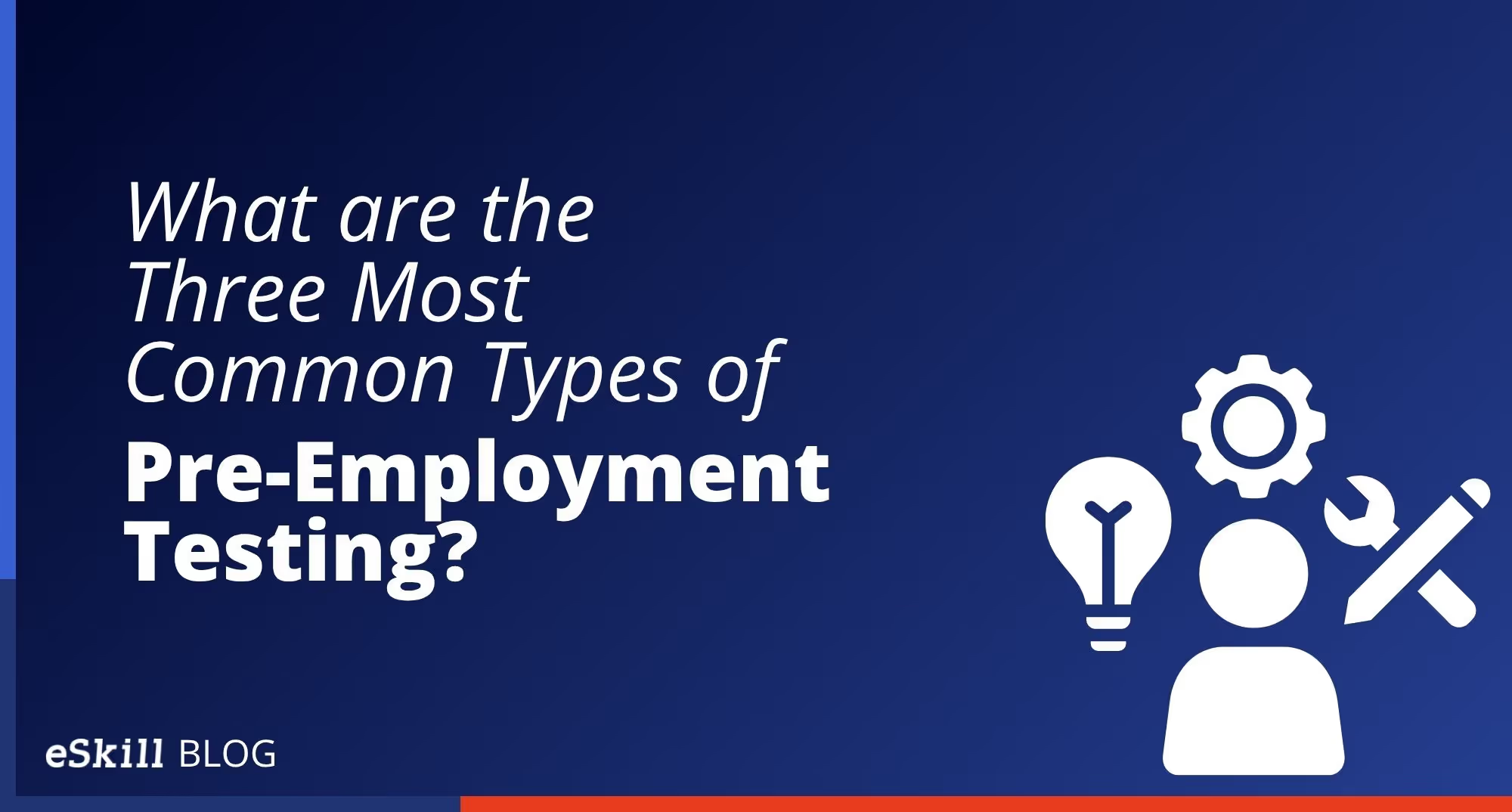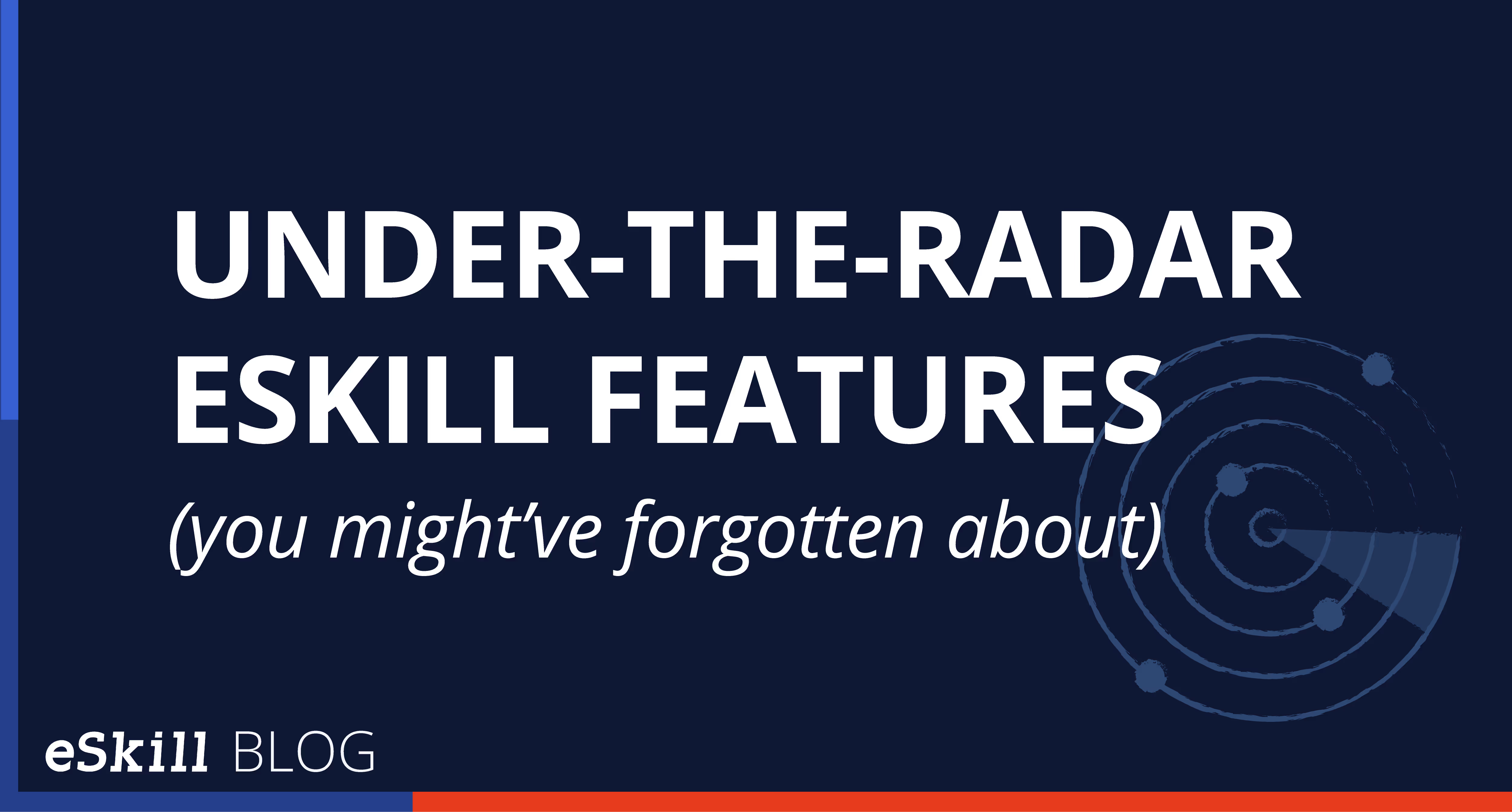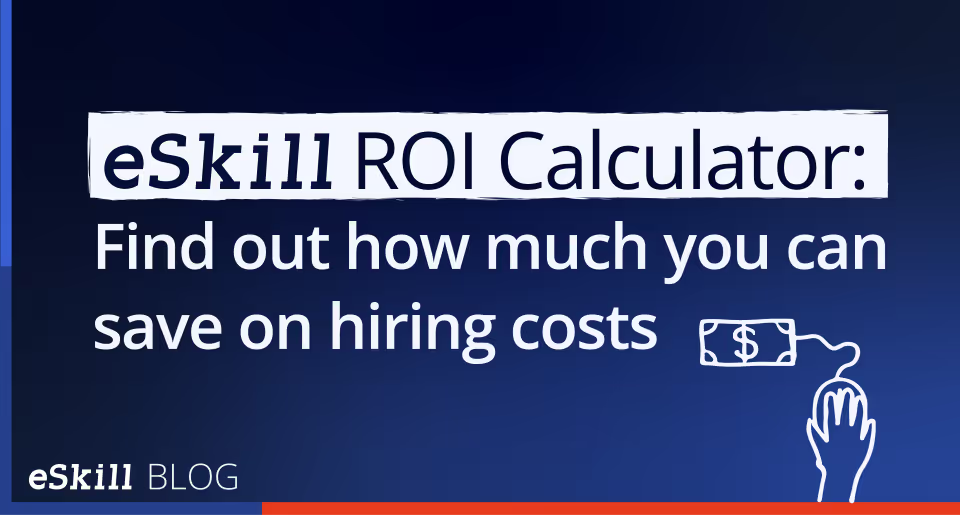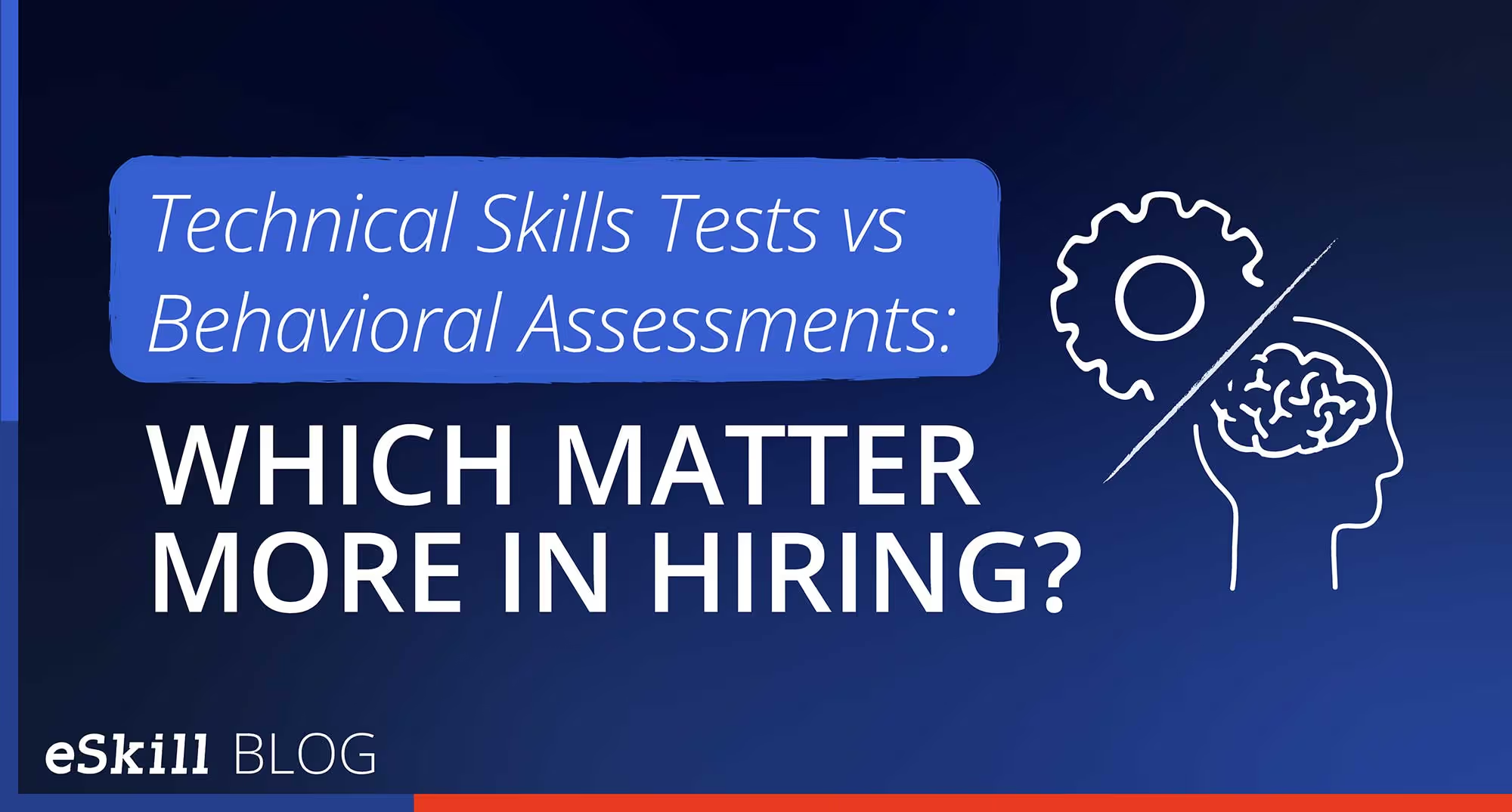The corporate landscape is more competitive than ever, and organizations are realizing the crucial role of their employees in driving success. Hiring the right talent is no longer just an HR function but a strategy that can significantly impact a company’s growth and prosperity. Traditional recruitment methods, while useful, may not always provide a comprehensive understanding of a candidate’s potential. To address this limitation, an innovative approach has emerged in the form of online pre-employment assessment tests.
In today’s competitive job market, hiring the right candidate is crucial for any organization’s success. The traditional interview process alone may not provide a comprehensive view of a candidate’s abilities and fit within the company culture. To make informed hiring decisions, employers are increasingly turning to online pre-employment assessment tests.
The best pre-employment assessments offer valuable insights into candidates’ skills, aptitudes, and personality traits. These are the different types of online pre-employment assessment tests that help organizations find the perfect candidates for their job vacancies.
- Skills Tests: Conducting technical skills assessments is a must for roles that demand specific technical expertise. These assessments evaluate candidates’ proficiency in the tools and technologies they’ll use on the job. Whether it’s coding languages for software developers, design software for graphic designers, or financial modeling for analysts, technical skills assessments ensure that candidates possess the necessary competencies to hit the ground running.
- Language and Communication Skills Tests: For positions that require strong verbal and written communication skills, language assessments can be valuable. These tests evaluate a candidate’s grammar, vocabulary, and clarity of expression. Effective communication is vital for roles in customer support, content creation, and international business.
- Cognitive Ability Tests: Cognitive ability tests assess a candidate’s problem-solving, critical thinking, and decision-making skills. These tests are invaluable for roles that require quick thinking and adaptability. By evaluating candidates’ mental agility, organizations can identify those with the potential to excel in complex and challenging tasks. Cognitive ability tests can also predict a candidate’s learning and adaptability capabilities, making them essential for positions requiring continuous skill development.
- Behavioral Assessments: A candidate’s behavioral traits and personality can significantly impact their success within a team and organization. Behavioral assessments delve into a candidate’s work preferences, communication style, problem-solving approach, and leadership potential. These insights enable employers to identify individuals whose behavioral traits align with the company’s values and culture. Behavioral assessments are particularly beneficial for roles that include teamwork, customer interaction, or managerial responsibilities.
- Situational Judgment Tests (SJTs): A situational judgment test is a type of behavioral assessment where candidates are presented with hypothetical scenarios they might encounter on the job. Candidates choose the most appropriate response or course of action from a set of options. SJTs assess a candidate’s decision-making abilities and problem-solving skills in real-world situations. These tests can be especially useful for customer-facing roles, managerial positions, and those that require ethical decision-making.
- Emotional Intelligence (EI) Assessments: Emotional intelligence is a critical trait that affects how individuals understand and manage their emotions and interactions with others. EI assessments are behavioral assessments that measure candidates’ ability to recognize emotions, empathize with others, and handle interpersonal relationships. For leadership positions or roles involving high levels of collaboration, emotional intelligence assessments can help identify candidates who possess strong communication skills, empathy, and the capacity to resolve conflicts effectively.
How the Best Pre-Employment Assessments Help Companies
The best pre-employment assessments can help organizations revolutionize hiring by enabling HR teams to gain deeper insights into job candidates’ abilities, skills, and personalities. These are some reasons why online pre-employment assessment tests have become essential to modern recruitment strategies.
- Enhanced Predictive Validity: The most significant advantage of online pre-employment assessment tests is their ability to improve predictive validity. The best pre-employment assessments are designed to assess a candidate’s aptitude, cognitive abilities, and relevant skills for the specific job role. Unlike traditional interviews and resumes, which often rely on subjective judgment, assessment tools provide objective data, leading to more accurate predictions of job performance. By focusing on specific competencies required for the job, employers can identify candidates with the highest potential to succeed, thus reducing the risk of costly hiring mistakes.
- Time and Cost Savings: The recruitment process can be time-consuming and expensive, especially when traditional methods yield suboptimal results. Online pre-employment assessment tests streamline the hiring process by automating candidate evaluation, thus saving valuable time and resources. These tools facilitate initial screening, allowing HR teams to shortlist candidates more efficiently. As a result, employers can focus their efforts on a smaller pool of qualified candidates who align with the organization’s needs, accelerating the hiring process and reducing recruitment costs.
- Objective Decision-Making: Subjectivity in hiring can lead to biased decision-making, which can negatively impact the diversity and inclusivity of the workforce. Online pre-employment assessment tests offer an objective evaluation of candidates’ abilities, skills, and cultural fit, enabling employers to make data-driven decisions based on merit. By minimizing unconscious bias, these tools promote fair and inclusive hiring, fostering a more diverse and dynamic workforce.
- Tailored Assessments for Different Roles: The best pre-employment assessments can be tailored to evaluate candidates based on the unique requirements of different positions within the organization. Whether it’s testing technical expertise for software developers, communication skills for sales representatives, or problem-solving abilities for project managers, customized tools align with the demands of each role. Consequently, employers can identify candidates who possess the ideal mix of skills and traits required for success in a particular job, leading to more successful hires.
- Candidate Engagement and Experience: In today’s competitive job market, candidate experience matters more than ever. Lengthy and cumbersome application processes can discourage top talent from pursuing opportunities with a company. Online pre-employment assessment tests offer a user-friendly and engaging candidate experience, making the application process more interactive and enjoyable. This positive experience creates a favorable impression of the company, even for candidates who might not ultimately get the job, enhancing the organization’s reputation and employer brand.
- Identifying Learning and Development Needs: Beyond assessing a candidate’s suitability for a specific job, online pre-employment assessment tests can also identify their learning and development needs. These assessments give insight into a candidate’s strengths and weaknesses, enabling organizations to design personalized training and development programs for new hires. By addressing skill gaps early on, employers encourage continuous improvement and ensure their workforce remains competitive and adaptable.
- Reduction in Employee Turnover: Employee turnover is a significant challenge for organizations, leading to increased recruitment and training costs. Utilizing the best pre-employment assessments can mitigate this issue by identifying candidates who possess not only the necessary skills but also the right fit for the company culture. Hiring candidates who align with the organization’s values and goals can lead to higher job satisfaction, increased employee engagement, and, ultimately, reduced turnover rates.
How Behavioral Assessments Help Companies Improve Hiring
Behavioral assessments have transformed the hiring landscape by providing objective insights, predicting job performance, reducing bias, and enhancing employee retention. The advantages of this innovative approach are evident in improved cultural fit, time and cost efficiency, and tailored development plans.
Behavioral assessments also play a significant role in fostering strong team dynamics and identifying potential leaders. As organizations evolve and adapt to an ever-changing job market, incorporating behavioral assessments into their hiring becomes an indispensable strategy for success. By leveraging the power of data-driven decision-making, companies unlock their workforce’s full potential and set themselves on a path toward sustainable growth and prosperity. These are some ways organizations benefit by using behavioral assessments.
- Objective Insights: Behavioral assessments offer a unique advantage by providing objective insights into a candidate’s personality traits, values, and motivations. While resumes and interviews often convey surface-level information, behavioral assessments dig deeper, offering a holistic view of the candidate. These assessments are designed to reveal how an individual is likely to behave in specific work-related situations, enabling hiring managers to make data-driven decisions.
- Predicting Job Performance: One of the primary benefits of using behavioral assessments is their ability to predict job performance accurately. By analyzing a candidate’s behavioral responses, employers can identify potential strengths and weaknesses that align with the job’s requirements. A person’s behavior in past situations is often a reliable indicator of their future performance, making these assessments a powerful tool in assessing a candidate’s suitability for a particular role.
- Reducing Bias in Hiring: Traditional hiring processes are susceptible to unconscious biases that can adversely affect the selection of candidates. Behavioral assessments, being based on quantifiable data, significantly reduce the risk of bias. Hiring managers can make fairer and more inclusive decisions by focusing on a candidate’s competencies rather than personal characteristics.
- Enhancing Employee Retention: Behavioral assessments not only aid in finding the right candidate for the job but also contribute to increased employee retention rates. When candidates are evaluated based on their compatibility with the role and the organization’s culture, they are more likely to feel satisfied and engaged in their work. This alignment results in decreased turnover and a more stable, productive workforce.
- Identifying Cultural Fit: A company’s culture plays a pivotal role in its success. Hiring individuals who align with the organization’s values and work ethic is crucial for maintaining a positive and collaborative workplace environment. Behavioral assessments can reveal whether a candidate’s values align with the company’s, ensuring a seamless integration into the team.
- Time and Cost Efficiency: Conducting thorough interviews and screening can be time-consuming and resource-intensive. Behavioral assessments streamline the hiring process, allowing hiring managers to identify top candidates more efficiently. By focusing on the most promising applicants, organizations can save time and resources, ensuring they invest in the right talent.
- Tailored Development Plans: Behavioral assessments not only benefit the hiring process but also extend their advantages to employee development. By understanding a candidate’s behavioral traits, organizations can tailor individual development plans that address specific strengths and areas for improvement. This personalized approach to growth and learning leads to enhanced employee performance and long-term career satisfaction.
- Improving Team Dynamics: A team’s success depends on how well its members work together and complement each other’s skills. Behavioral assessments contribute significantly to creating well-rounded teams by identifying candidates whose personalities and working styles align with existing team members. As a result, team dynamics are improved, and collaboration becomes more seamless.
- Identifying Leadership Potential: Behavioral assessments can help identify leadership potential among job candidates. Certain behavioral traits, such as communication skills, decision-making abilities, and adaptability, are crucial for successful leadership. By recognizing these traits during the hiring process, organizations can build a strong leadership pipeline and groom future leaders from within.
Get Started with Online Pre-Employment Assessment Tests
In a world where talent is the backbone of organizational success, making informed hiring decisions is imperative. Online pre-employment assessment tests offer a data-driven approach to candidate evaluation, providing employers with deeper insights into potential hires’ abilities and compatibility with the company culture.
The advantages of using these tools extend beyond enhanced predictive validity and cost savings; they also contribute to a fairer, more inclusive, and more efficient hiring process. By leveraging the best pre-employment assessments, companies can build a workforce that is better equipped to drive innovation, productivity, and long-term growth, solidifying their position as industry leaders. Embracing these recruitment strategies is an essential step toward building a thriving and resilient organization.
Would you like to see how the best pre-employment assessments can help you improve hiring outcomes throughout your organization? Contact us to request a demo.

Get ademo.






